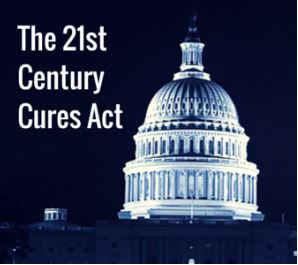- Medical groups push to water down requirements for disclosing industry ties (statnews.com)S. 2978: Protect Continuing Physician Education and Patient Care Act (govtrack.us)OpenPayments (cms.gov)
Nearly 100 national and state medical societies from around the United States are backing a Senate bill (Protect Continuing Physician Education and Patient Care Act, (SB 2978) that would exempt drug and device makers from reporting payments made to doctors for receiving continuing medical education...sessions, medical journals, or textbooks. Among them are the American Medical Association and the American College of Cardiology...The move is the latest push in a long-running effort to roll back requirements for reporting such payments to a federal database, which tracks financial relationships between companies and physicians. Known as OpenPayments, the database was launched...in response to concerns that financial ties between drug firms and device makers and doctors may unduly influence medical practice and research. It was included in the Sunshine Act provision in the Affordable Care Act. A recent analysis found that payments can affect prescription rates...
- Lawmakers look to prevent drug makers from thwarting generic competition (statnews.com)
For the third time...congressional lawmakers have introduced a bill designed to end a practice that generic drug makers say is used by brand-name rivals to thwart competition...Known as the Creating and Restoring Equal Access to Equivalent Samples Act, the bipartisan legislation comes amid ongoing complaints that brand-name drug makers sometimes refuse to provide samples to generic companies. They need samples to prove their copycat versions are equivalent to the brand-name drugs in order to pass regulatory muster...The legislation would allow the secretary of Health and Human Services to vet the request for samples and create a "cause of action," presumably making it easier for a generic company to go to court in hopes of forcing a brand-name rival to make samples available...Whether the legislation will gain any traction is unclear...
- Vermont Pharmacists Cheer Provider Status Portions of New State Opioid Law (ashp.org)
Tucked inside a new Vermont law to combat opioid abuse are provisions that define clinical pharmacy services and indirectly confer healthcare provider status on pharmacists in the state...The legislation, formerly known as Vermont Senate Bill 243, defines a healthcare provider as "a person, partnership, or corporation, other than a facility or institution, that is licensed, certified, or otherwise authorized by law to provide professional health care service in this State to an individual during that individual's medical care, treatment, or confinement."...Separately, the law defines clinical pharmacy, in part, as the health science discipline through which a pharmacist "provides patient care to optimize medication therapy and to promote disease prevention and the patient's health and wellness."...The new law also states that insurers "may" pay or reimburse pharmacists for providing clinical services within their scope of practice...The next goal, he (VtSHP President Jeffrey Schnoor) said, is to secure reimbursement for services that pharmacists, as recognized healthcare providers, provide to Medicaid beneficiaries—and to be ready for future federal-level recognition as healthcare providers under Medicare.
- The Impact of Precision Medicine and the 21st Century Cures Act on Modern Pharma (specialtypharmacytimes.com)
The 21st Century Cures Act will have a huge impact on the pharmaceutical industry nationally and globally...All of the major pharmaceutical companies target the United States...they will have to comply with the...Act (when passed)…Precision medicine, meanwhile, is a programme announced...last January...it is an emerging approach for disease treatment and prevention, which includes a patient’s variability in their genes, environment, and a person’s lifestyle...What has the precision medicine initiative got to do with the 21st Century Cures Act?.. Precision medicine would allow the inclusion of much more technology driven healthcare innovation and would permit the introduction of additional personal data and information into health science...The requirement to get drugs to market faster is evident. However, a lack of interoperability poses a huge challenge when it comes to getting patient data consolidated in time for clinical trials...A large part of the new legislation is aimed at trying to connect the research and development arms of life science companies to health IT or digital health specialists...all pharmaceutical companies will benefit from the Act as they will be able to get their drugs out faster. On the technology side, the major beneficiaries of the Act will be the big data analytics players, since this lies at the heart of speeding up approvals...The good news is most (if not all) of the major players are fully aware of the challenges and opportunities of the Act.
- Missouri Law Protects Patients Against Ineffective Medications (pharmacytimes.com)
Patients in Missouri will no longer have to repeat ineffective medications... Step therapy is a cost-savings measure used by some insurers that requires patients to take different medications from what their health care provider prescribed before agreeing to cover the cost of the original medication... Missouri Governor Jay Nixon recently signed into law the "Step Therapy for Prescription Drugs" bill (HB 2029), which prohibits insurers from requiring patients to take medications they’ve already tried when they switch their coverage or change jobs, or if the medication is reclassified...Importantly, the law doesn’t ban the practice of step therapy altogether. It also doesn’t preclude insurers from having patients try a generic version of a medication. Rather, it prohibits insurers from going through step therapy more than once for a given medication...
- Pharma loses one battle over drug take-back programs, but wins another (statnews.com)
The latest skirmishes over drug take-back programs yielded a mixed outcome this week for the pharmaceutical industry, which has been battling local governments that want drug makers to pick up the tab...officials in Snohomish County, Wash., voted unanimously to require drug companies to run a program that would allow consumers to dispose of unwanted and unused medicines. At the same, the Los Angeles County Board of Supervisors delayed passing a similar ordinance until November...The actions...underscore the growing challenge that the pharmaceutical industry faces as more local governments consider such programs...Local officials are pursuing these laws in the face of rising disposal costs, growing concerns about contaminants in water supplies, and a desire to reduce the threat of drug abuse stemming from medicines lingering in cabinets...the Pharmaceutical Research and Manufacturers of America...objected to the effort, saying that maintaining the program would be unwieldy and require the added burden of adhering to US Drug Enforcement Administration regulations because controlled substances would likely be turned in by consumers..."Siding with corporate interests over public health and safety can be a dangerous political position, and the people will have the final say," said Heidi Sanborn, the executive director of the California Product Stewardship Council. "This is not over,"....
- Vermont poised to become first state to require pharma to justify pricing (statnews.com)
Vermont could become the first state in the country to require drug makers to justify price hikes on their medicines, a move that may prompt others to take similar action but also spark a battle with the pharmaceutical industry...A bill that would force companies to explain their pricing recently passed the legislature, but must still be signed by Governor Peter Shumlin…The development comes amid mounting furor over prescription drug costs. Several states have responded by proposing legislation that requires drug companies to either reveal their costs or explain their pricing. These demands reflect industry arguments that rising prices reflect rising R&D costs...Transparency is the first step in getting prices under control...I don’t think this bill will lower prices next year, but hopefully it will get other states to pass similar laws and pressure Congress to act...Some companies will resist turning over this information because it looks at the most important business metrics that they don’t want to share with the world...the language in the bill is troublesome, because it is "virtually impossible" to comply with what he described as an "open-ended" requirement for companies to provide all of the relevant information and documents to justify price hikes.
- Advocates hope shaming drugmakers discourages price spikes (finance.yahoo.com)California Senate Bill 1010 (openstates.org)
Frustrated by the rising cost of prescription drugs, California health advocates hope sunlight and a dose of shame will discourage drugmakers from raising their prices too quickly or introducing new medications at prices that break the bank...They're promoting legislation that would require drugmakers to provide advance notice before making big price increases. Pharmaceutical companies have come out in force against the measure, warning it would lead to dangerous drug shortages...California's SB1010 would require pharmaceutical companies to provide advance notice to drug purchasers before increasing the price of a drug by 10 percent or $10,000 a year. For generics, the threshold is $100 a month or 25 percent. Insurance companies would be required to report data on drug prices to state regulators, including the portion of premiums attributable to pharmaceuticals...Proponents hope the advance notice will give governments, insurers and pharmacy benefit managers a chance to negotiate...But drugmakers warn it could create regional shortages of some drugs if large pharmacy chains or distributors horde medications to beat the price increase. That would create an environment for speculators to drive prices up, not down.
- New Law Strengthens Collaborative Practice in Colorado (ashp.org)
Colorado Gov. John Hickenlooper...signed legislation, S.B. 135, which expands collaborative practice for licensed pharmacists and opens the door for health benefit plans to provide coverage for pharmacists’ services...S.B. 135 allows pharmacists to enter into collaborative practice agreements with physicians and advanced practice nurses and grants licensed pharmacists the authority to provide healthcare services to patients under protocols delegated by a physician or advanced practice nurse. The law also authorizes pharmacists to provide care under a statewide drug therapy protocol developed by the boards of pharmacy, medicine, and nursing...the law does not require health plans to pay for pharmacists’ services...Health plans must reimburse pharmacists in their provider networks for services that would be reimbursed if provided by a physician or advanced practice nurse...
- Will Rx Ballot Initiative Save Money? Report Offers an Educated Shrug (realclearhealth.com)
It is "highly uncertain" how much money the state of California would save if a ballot measure to cap drug prices passes in November — and it might not save money at all. That’s the key finding in a preliminary report by the Legislative Analyst’s Office...The ballot initiative, known as the Drug Price Relief Act, would prohibit the state from paying more for a prescription drug than the lowest price paid by the U.S. Department of Veterans Affairs...But the financial impact on the state is unclear, the analyst’s office said, for two reasons.
- One, the lowest prices paid by the VA are not known and there’s no guarantee they will be revealed to the public — or to state officials.
- Two, it’s unclear how drug companies would react if the measure became law: The companies might, for example, raise prices on the VA, nullifying the intended effect.
"This measure is misleading and unworkable," Hollaine Hopkins, executive director of the Lupus Foundation of Southern California, said in a prepared statement. "It will lead to increased red tape and bureaucracy, and could actually increase costs for the state’s taxpayers."...Opponents of the measure had raised more than $58 million as of May 4, according to the California Fair Political Practices Commission. The AIDS Healthcare Foundation has raised a little more than $4 million in support of the initiative.








